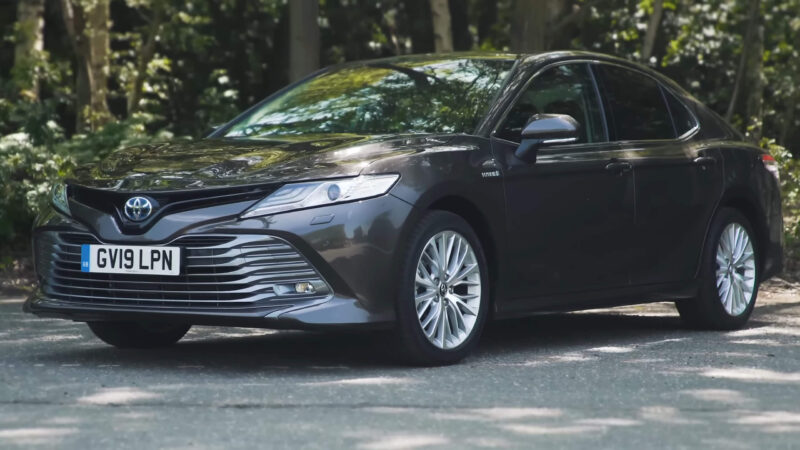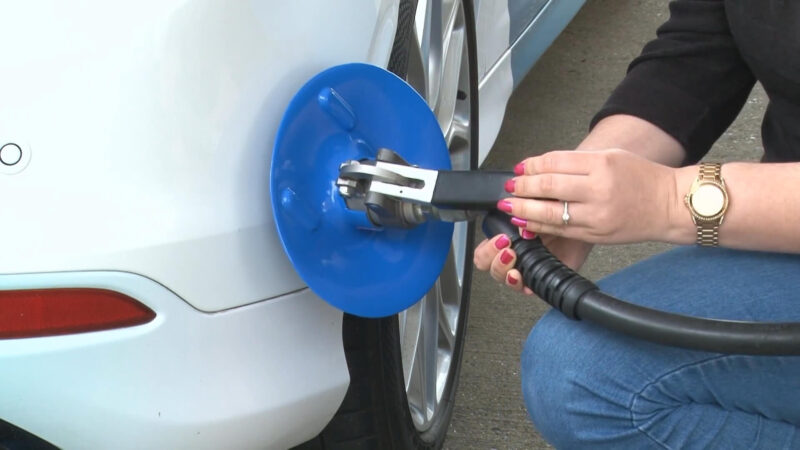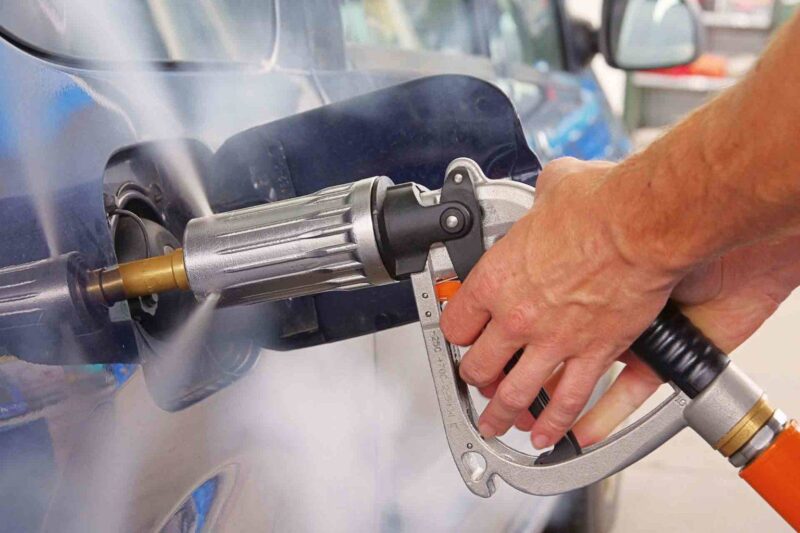Switching your car to LPG might have you thinking about how it will affect your engine. Many people are curious if this move really benefits the car or if there are hidden drawbacks.
The truth is, LPG is not only a more affordable option but also helps your engine last longer by keeping things cleaner inside. You’ll save money, drive cleaner, and have a vehicle that stays in better shape.
Let’s break down the key facts and clear up any confusion about using it in your ride.
Key Takeaways
- LPG keeps the engine cleaner and reduces wear, which can extend the engine’s lifespan.
- Switching to LPG can save money on fuel, but there are some upfront costs for conversion.
- While there are performance myths, the real impact on power is minimal, around a 4% drop.
Impact on Engine Performance

Many drivers worry that it could negatively affect engine performance, but the reality is different. The impact on power and longevity is minimal and often positive.
- Small Power Reduction: Converting a vehicle may lead to a minor drop in engine power, usually around 4%. For most drivers, this slight reduction won’t be noticeable in daily driving.
- Reduced Carbon Buildup: It burns more efficiently than petrol, which means fewer carbon deposits form inside the engine. This leads to cleaner components, such as spark plugs and valves, ultimately extending engine life and ensuring smoother operation.
- High Octane Rating: With an octane level of around 100, LPG significantly reduces the chance of engine knocking, ensuring smoother and more efficient engine performance over time.
Best Cars to Upgrade

- Toyota Camry: Known for its reliability and fuel efficiency, the Camry is a great candidate for conversion. Its engine handles the liquid pure gas smoothly, offering cost savings on fuel without sacrificing performance.
- Honda Accord: Another reliable and fuel-efficient sedan, the Accord’s engine is well-suited for this option. With minimal impact on power and the same smooth performance, Accord owners benefit from lower fuel expenses while maintaining long-term engine health.
- Chevrolet Malibu: The Malibu offers a balance of performance and fuel economy, making it a good fit for conversion. The cleaner combustion provided by liquid pure gas results in fewer carbon deposits, which extends the life of the engine and reduces the need for frequent maintenance.
- Ford Fusion: As a popular sedan in the US market, the Fusion is compatible with this conversion. Its durable engine design ensures that it can handle the shift to LPG without significant performance loss, offering a cost-effective way to cut down on fuel expenses.
- Hyundai Sonata: Known for being budget-friendly with good performance, the Sonata is another strong option for conversion. Its engine can easily adapt to liquid gas, giving drivers lower fuel costs while maintaining solid reliability.
Cars to Avoid
Not every car is suited for this type of conversion. Certain models either have engines that don’t handle the conversion well or may face significant performance issues.
- High-Performance Sports Cars: Models like the Ford Mustang, Chevrolet Corvette, and other high-performance sports cars are not good candidates for LPG. These cars are built for power and speed, and LPG’s slight power reduction (around 4%) would be more noticeable in these engines, affecting overall performance.
- Hybrid Cars: Vehicles such as the Toyota Prius or Honda Insight are designed to work with electric and petrol engines in harmony. Converting these cars to LPG could interfere with the hybrid system and significantly complicate their overall performance, reducing the benefits of having a hybrid in the first place.
- Luxury Vehicles: Cars like the Mercedes-Benz S-Class or BMW 7 Series are also poor candidates for LPG conversion. The precision tuning of luxury engines may suffer from the slightly lower energy density of LPG, leading to performance loss that would be more apparent in these high-end vehicles.
What About Diesel Cars?
Diesel engines are impossible to convert to LPG due to fundamental differences in engine design. Unlike petrol engines, diesel engines use compression ignition, which doesn’t work with LPG systems.
Does LPG Save You Money?

One of the main reasons people switch to LPG is the cost savings. LPG fuel is significantly cheaper than petrol or diesel, providing immediate financial relief at the pump. The savings are not just limited to fuel costs; the long-term benefits are substantial:
- Fuel Savings: LPG costs nearly 50% less than petrol or diesel. Even though vehicles may consume slightly more LPG (around 10-30% more in volume), the overall cost savings range from 20% to 30%.
- Lower Maintenance Costs: The cleaner combustion of LPG leads to less wear on the engine’s components. Fewer carbon deposits result in reduced maintenance costs over time, as parts like spark plugs and valves don’t require as frequent replacements.
- Government Incentives: In some areas, drivers receive tax benefits or rebates for using LPG due to its lower emissions, further increasing savings.
Environmental Benefits of LPG
Many drivers are attracted to LPG due to its cleaner combustion and reduced emissions:
- Lower Emissions: LPG produces up to 75% less carbon monoxide and reduces nitrogen oxides by around 40%. This makes it a much cleaner option compared to petrol or diesel. The reduction in harmful emissions helps improve air quality, which is crucial for cities with high pollution levels.
- Cleaner Combustion: LPG’s cleaner burn leads to fewer particulates and less soot being released into the environment. This not only helps the environment but also keeps your engine cleaner, resulting in less wear and tear.
- Potential for BioLPG: There is ongoing development of BioLPG, a renewable version made from organic materials. This further enhances LPG’s environmental benefits, offering a greener, more sustainable fuel option.
Maintenance and Durability with LPG
LPG can actually increase the durability of your engine and lower maintenance costs. Many people worry about potential issues, but the facts show that LPG can keep your vehicle running smoothly for longer.
- Cleaner Engine Components: Since LPG burns cleaner than petrol or diesel, there is less carbon buildup inside the engine. Components like spark plugs, valves, and pistons stay cleaner, which leads to fewer breakdowns and longer intervals between maintenance.
- Extended Engine Life: The cleaner combustion of LPG reduces wear and tear on critical engine parts. Many users report that LPG helps extend the engine’s life by up to 50%, keeping the vehicle in better condition over time.
- Reduced Maintenance Costs: With less residue buildup, your car requires fewer repairs and replacements. Fewer carbon deposits mean that your engine operates more efficiently, resulting in lower maintenance costs in the long run.
Potential Downsides of Using LPG
While LPG offers a range of benefits, there are a few downsides worth considering before making the switch. Understanding these will help you make a more informed decision:
- Upfront Conversion Costs: Converting your vehicle to LPG comes with an initial investment. Depending on the type of vehicle and system installed, conversion costs can range from moderate to high. However, these costs are usually offset by long-term fuel savings.
- Reduced Fuel Range: LPG has a lower energy density compared to petrol or diesel, meaning your vehicle may have a shorter range between fill-ups. This requires more frequent refueling stops, especially if LPG stations are not easily accessible in your area.
- Limited Infrastructure: In some regions, LPG refueling stations are less common. This can pose a challenge, particularly for drivers in areas with limited infrastructure, making long trips more difficult unless carefully planned.
So, Should We Convert Cars to LPG?
Converting your car to LPG can be a smart decision, but it depends on your priorities. If saving money on fuel and extending the life of your engine are top concerns, then LPG offers clear advantages. The cleaner combustion keeps your engine in better shape for longer, and the lower fuel cost provides significant long-term savings. On top of that, LPG’s reduced emissions make it a more environmentally friendly choice.
However, it’s important to weigh the initial conversion costs and the availability of LPG refueling stations in your area. If you have easy access to stations and can handle the upfront investment, the switch to LPG is a move that can benefit both your wallet and the planet.
In the end, the decision to convert depends on your driving habits, location, and long-term goals.

